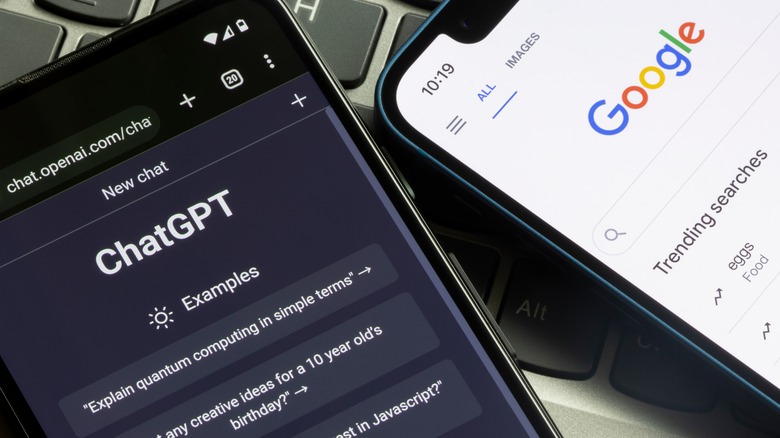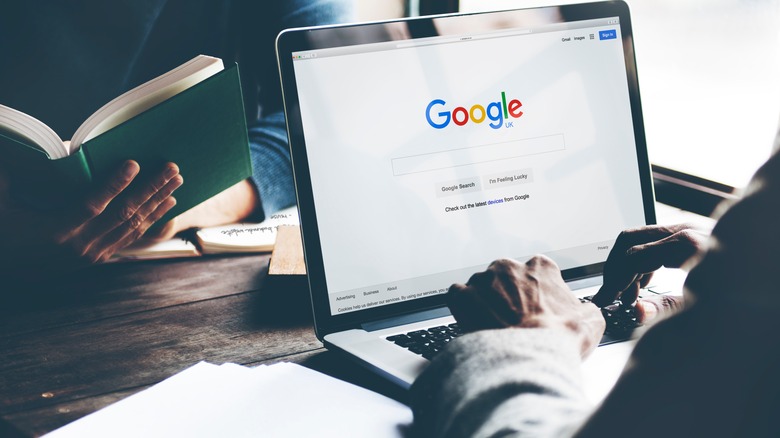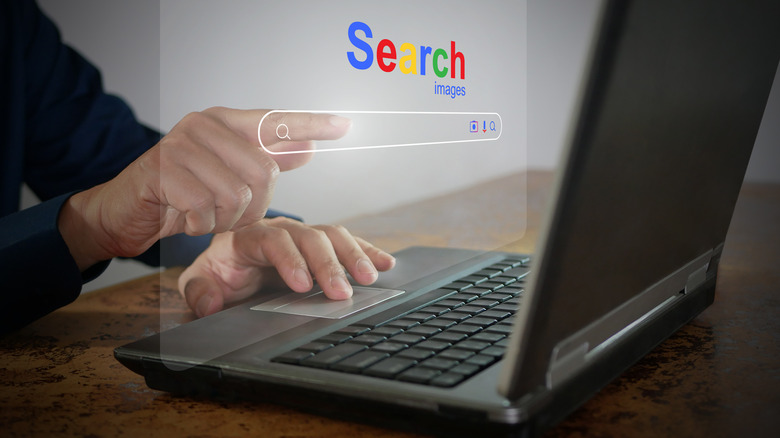This Popular ChatGPT Extension Could Save You A Bunch Of Time Researching On Google
As strange as it may seem, there was a time when everybody had to rely on great encyclopedia volumes or the knowledge of friends and family (always a questionable spring to tap) for an answer to a common query. Today, of course, we have an invaluable answer to all of these things. How old is Take That's Gary Barlow? Google it. What year did Alexander Graham Bell create his telephone? Google it. How many albums has Adele sold? Google it.
Internet searches are, of course, incredibly convenient. There are some important things to be aware of though: the dangers of personal information being included with such searches, for one thing, and the fact that several thousand results on a common query can be very difficult to sift through when specific searches are needed. Yet another extension that utilizes the increasingly ubiquitous ChatGPT proposes a potential answer to this. Liner AI x ChatGPT offers a way to organize Google search results, highlight important elements, and much more.
What is Liner AI x ChatGPT?
So many of us are used to the Google search rabbit hole. You can begin with a targeted search for a specific query before following it into another link, and then another. Before you know it, you're reading through the full discography of Starland Vocal Band rather than researching the paper you were originally supposed to be working on. Liner, as the product's website reports, is designed to keep you on task and your Google searches useful and relevant.
It has a range of tools to help accomplish this. Offering the capacity to highlight sections in PDF files and articles on the web allows the user to not only access outrageous amounts of information (this is the Internet's forte, after all), but to also parse it effectively and highlight the pertinent sections for later. Within Liner's own interface, any highlighted text is kept to be perused later. This way, that invaluable fact, quotation, or citation is stored safely, without any manual note-taking on the user's part.
On top of this, Liner, while running, operates unobtrusively in the background, connecting users to their next recommended searches on the topic and important sources of information. Those who have been frustrated by Google searches that seem tantalizingly close to being useful but don't provide the exact information (which is most of us) are sure to appreciate the tool's functionality. With ChatGPT advancing to GPT-4 in March 2023, there's no telling how much further this technology may go.
How Liner works
Liner is available via the product's official website, as a browser extension in the Chrome Web Store, and through the respective app stores on Mac, Windows, Android, and iOS. Upon activation, per the Liner tutorial on YouTube, it reacts to Google searches from the corner of the browser. The example search used is "how to get featured on product hunt." Plugging this into Google, as demonstrated, results in about 181,000,000 results. Liner AI claims to break the data down into a series of steps, then provides a bulleted list of references for the information, before suggesting some search queries to try next for more details.
As the Chrome Web Store listing explains, this allows the user to delve into more in-depth information, should it be required. The issue with such software is that there's a major difference between sounding authoritative and actually providing legitimate, factual details. Liner aims to address that by presenting the user with generated References so that they can verify the information provided. Other users of the extension help to curate its results, too.
In December 2022, Princeton University Computer Science professor Arvind Narayanan tweeted about the advancement and limitations of ChatGPT. "The old version could be tricked into taking nonsensical questions at face value, which is no longer the case," Narayanan wrote. "But it is still fooled by subtly false premises, like encryption algorithms being secret." Liner's objective is to use such technology to ease access to information, both auto- and user-collated, while also providing the all-important receipts.


